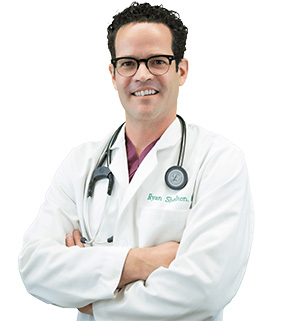Take just a moment to think about what life would be like without vision. Unless you were born blind, you have no concept of what it means to not be able to see, but if you were to suddenly lose your vision, you would very quickly learn just how much relied on it. Because your vision is so essential, it pays to take good care of your eyes. Unfortunately, you are probably making some simple mistakes on a daily basis that could be dangerous for your eyes.
Maintaining healthy eyes and proper vision requires more than just an annual visit to the eye doctor. First and foremost, you need to understand how your daily habits have the potential to affect your eyes and thus your vision. Next, you should educate yourself about the most common eye problems, so you can learn how to avoid them. That’s exactly what we’re going to cover in this article, so keep reading!
Never Do These 6 Things to Your Eyes
When it comes to keeping your eyes healthy, it’s largely a matter of common sense. You should never put something in your eye that you aren’t absolutely sure is safe, and you should take basic precautions regarding exposure to bright light. In addition to these basics, never do the following 6 things:
- Never sleep in contacts. Contact lenses physically cover the surface of the eye which can block oxygen from reaching the corneas – this can result in infection or corneal ulcers. Even the “overnight wear” contacts can contribute to this problem so always remove your contact lenses for anything longer than a cat nap.
- Never wear makeup to bed. Not only is wearing your makeup to bed bad for your skin, but it can clog the glands around your eyes and increase the risk of skin irritation. Always include makeup removal in your nightly skincare routine.
- Never apply liner to your waterline. Applying liner to your waterline might complete your look, but it can also mix with your tears and coat your contact lenses with particles that attract bacteria. Stay safe by only applying liner to your outer lash line.
- Never use expired eye care products. Eye care products have an expiration date for a reason – not only are they less effective past that date, but they could actually harm your eyes. Always check products like eye drops, contact solution, and even the contacts themselves to make sure they are fresh.
- Never misuse eye drops. While eye drops may help to relieve problems like redness in the short term, using them more often or for longer than recommended can actually make the problem worse. For example, redness-reducing eye drops work by shrinking the blood vessels in the eye, but that can lead to circulation problems if you use them too much.
- Never skip your annual eye exam. Your annual eye exam is your best protection against serious and chronic eye problems – problems that can occur within the structure of the eye where you can’t see them. An annual eye exam does more than just check your vision – it also checks for problems like glaucoma and macular degeneration.
In addition to avoiding the six things listed above, don’t make the mistake of ditching your sunglasses during the winter. Though you may be tempted to soak up every ray of sun you can on a bright wintery day, you still need to protect your eyes from UV rays – the sun can still damage your eyes even in the winter. Wearing sunglasses does more than just make it easier to see in bright conditions – they also help prevent corneal burns, cataracts, skin cancer on the eyelids, and even macular degeneration. Just make sure that the shades you pick block at least 99% of both UVA and UVB rays.
What Are the Most Common Eye Problems?
Now that you know the basics about what not to do to your eyes, you should take the time to learn some healthy habits for protecting your eyes and that starts with learning about some of the most common eye problems. The more you know about common eye issues, the better you will be able to protect yourself from them or, at the very least, identify the symptoms early on so you can seek treatment. These are the five most common eye problems:
- Cataracts – A cataract is a clouding of the lens that can obstruct your vision. In most cases, cataracts are related to aging, but other factors such as smoking and diabetes can contribute as well. Symptoms of cataracts may include blurred vision, faded color vision, glare, poor night vision, and double vision. Unfortunately, cataracts do not go away, and surgery may be required if they cause vision loss sufficient to impact your daily activity.
- Refractive Errors – Vision is the result of light passing through the structures of the eye and being refracted, or bent, to form images. When that refraction becomes skewed, it results in vision problems such as nearsightedness, farsightedness, and astigmatism. These problems are best treated with corrective lenses.
- Glaucoma – The term glaucoma refers to a collection of diseases that damage the optic nerve in the eye, typically the result of fluid accumulation and rising pressure inside the eye. Unfortunately, symptoms of glaucoma typically don’t develop until the problem becomes advanced and vision loss due to glaucoma cannot be restored. Increased intraocular pressure can be corrected with medicated eye drops, however, to slow or prevent progression.
- Diabetic Retinopathy – A complication of poorly managed diabetes, diabetic retinopathy is caused by damage to the blood vessels in the retina, the light-sensitive tissue in the eye. In the early stages, this condition causes no or only mild vision problems, but it can progress to total blindness. Controlling blood sugar is the best way to prevent this problem.
- Macular Degeneration – The leading cause of vision loss, macular degeneration affects more people than cataracts and glaucoma combined, and it is an incurable eye disease. Macular degeneration is caused by deterioration in the central part of the retina, the macula, and there are several different types of the disease. Risk factors for macular degeneration include genetics, age, race, and smoking habits.
Because you use your eyes all day every day, you may not notice when small or subtle changes occur. As soon as you become aware that something has changed, you should contact your doctor. Catching eye problems in the early stages is essential for treatment, especially for diseases that can lead to a partial or total loss of vision. Even if it turns out to be nothing, it is always better to be safe than sorry.










